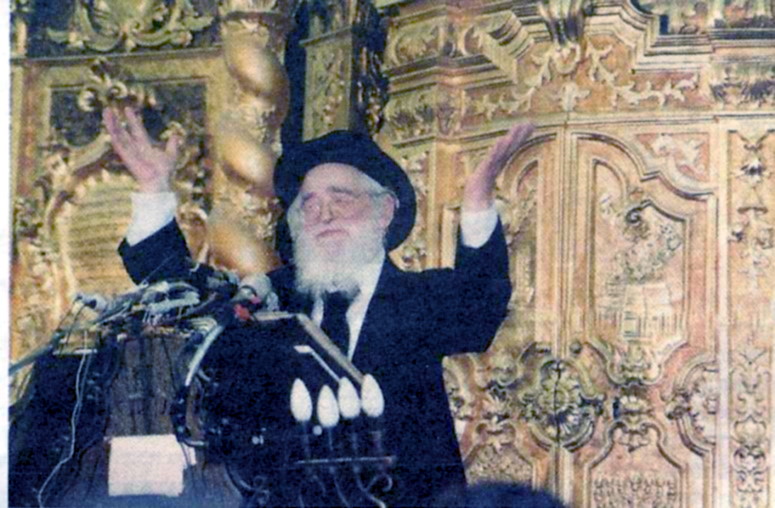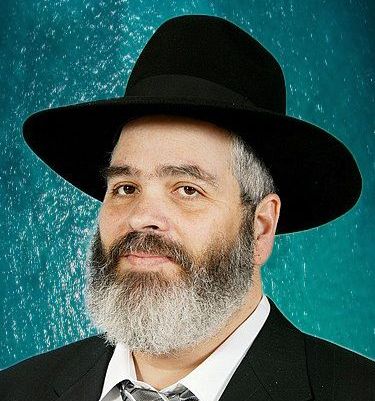  |
|
| |||||

This Google Custom Search looks only in this website. Irresponsible Journalism Stokes the Flames of Antisemitism
The New York Times credited its reporting on New York State yeshivas as the impetus for the passage of legislation banning corporal punishment in all classrooms. Agudath Israel said in a press release that these self-congratulations are false.
As Agudah's KnowUs previously pointed out when The Times first credited itself for the bill, the bill's sponsor,«Senator Julia Salazar, publicly debunked The Times' portrayal on X/Twitter of why she introduced the bill, stating:
"To be clear: We introduced this bill because the law should explicitly ban corporal punishment in all schools. The use of physical or violent methods to ostensibly discipline students has happened in many schools. I haven't seen any evidence of it being a pattern in yeshivas."
This sentiment was echoed by the bill's co-sponsor, Senator Andrew Gounardes.
As we have seen with the Times' reporting on the Middle East, facts sometimes seem relegated to pesky, irrelevant obstacles standing in the way of a desired narrative about Jews.
What causes anxiety to us all, everywhere these days, is how to deal with fear and helplessness, feelings which naturally accompany a state of war.
HaRav Shach expressed his thoughts during the Yom Kippur War to a group of Jews from abroad who were studying here, who asked if they should return to their countries of origin.
He replied that a Jew need not fear; a Jew must live with full faith and trust that all will be well, and that whatever Hashem does is for the good. However, he added, fear does not derive from rational thought but from emotion. One cannot conquer emotion through facts and statistics. If a person cannot deal with emotions, with his feeling of fear, he must create walls of natural defense to fight it.
Maran was wont to give messages of comfort and reassurance, of emunah and bitochon in particular, during wartime, stressing that this did not refer to hope for better times. During the war, he imbued in us the belief that we did not have anyone upon whom to rely here in E. Yisroel, being like a lamb surrounded by seventy wolves, read: the hostile nations all around and their hatred towards Israel.
It would be a good thing to ask the analysts and critics et al, the know-it-all guys, to take a vacation-without-pay. These days they are looking for a punching bag, for someone on whom to lay blame for the hitches and glitches, and are themselves responsible no less. They demand from anything that moves to assume the culpability.
The first thing for them to do is to look straight in the mirror and examine where they fell short, and that applies to almost all of them, save some solitary souls. They were all partners to the "conception" that led the top echelons of state and army to believe that they [Hamas] were normal people, and that if we only improved their economic situation and provided them with lots of funds, we'd be able to view them as a partner and maintain domestic political quiet. They regarded the residents of the Gaza Strip and their conduct as 'normal' enemies with whom we could make deals and arrive at agreements.
This was how the winds blew in the Israeli media for the past many years. And whenever stormy weather brewed, they regarded it as part of the price we had to pay in order to eventually arrive at some sort of agreement and quiet.
"The daughter of so-and-so to so-and-so" — what does this mean? Hashem designs marriage matches, but the rule is that finding one's predestined match is as difficult as the splitting of the sea! This series of fundamental issues and understanding of shidduchim was first published in 1992, about 31 years ago!
Part III
Fight Staunchly Against Personal Interests
The Alter of Novardok extracts from the chapter of Eliezer and Rivka a lesson on how one should steer clear of personal negiyos by leaning over backwards in the opposite direction.
The Torah quotes Eliezer as saying to Avrohom, "Perhaps — ulai — she will not be willing to return with me."
Our Sages note that this is written without the letter `vov', reading "eilay — to me." Eliezer had a daughter whom he wished to marry to Yitzchok. It was in his interest that he fail to find a wife for his master's son so that he would marry Eliezer's daughter.
As soon as Eliezer became aware of his personal interest in the matter, he knew that he would have to bend over backward to overcome his natural tendencies to manipulate the affair for his benefit or simply to shirk his duty.
* * *
Outstanding Articles From Our Archives
Opinion & Comment
by Rabbi Yechezkel Spanglet
Timely words for our troubled times.
Sixty-two years ago, a tormented Yid sat with his hands enveloping his face, weeping uncontrollably in his dilapidated bunk. There in Auschwitz, he had experienced inhumane conditions beyond imagination. He did not know if he would witness the next sunrise. He had reached the brink of total despair.
That night, his Rebbe appeared to him in a dream and stated the following words from Krias Shema. "Vechoro af Hashem bochem - Hashem will arouse His wrath against you." In a firm, reassuring voice, his Rebbe instructed him to pause between the words vechoro af and Hashem bochem, transforming the meaning to, "Even when His wrath is aroused . . . Hashem is with you!" Buoyed by this encouraging dream, this Yid did not succumb, but survived one of the most horrifying epochs of world history.
From where did this Yid draw his strength? What is the secret of Am Yisroel's resiliency throughout the most oppressive periods in history?
This week's parsha speaks of a bris, a covenant. A covenant is an irrevocable agreement. This bris was offered by Hashem to Avrohom Ovinu and his descendants.
IN-DEPTH FEATURE
by R. M. D. Spiro
Motzei Simchas Torah marked the end of the life of "the true Ish Ho'eshkolos" (in HaRav A. Gurwitz's words), of one of the "yechidei seguloh of our generation" (in HaRav Tuvioh Weiss's words). After a serious illness, HaRav Chaim Kaufman was niftar in Gateshead on motzei Simchas Torah at the age of 68. He left behind a broken widow and children, a saddened kehilloh and distraught talmidim throughout the entire world.
On the night after Klal Yisroel danced around the Torah, the heart which pulsated for Torah with all its might, stopped beating. The voice which had beamed the message of Torah on five continents is no more. An indication of his international acclaim is the fact that the Telephone Kol Haloshon network has been swamped by literally thousands of calls from people who are eager to listen to the hespedim.
|
|||||




.jpg)



